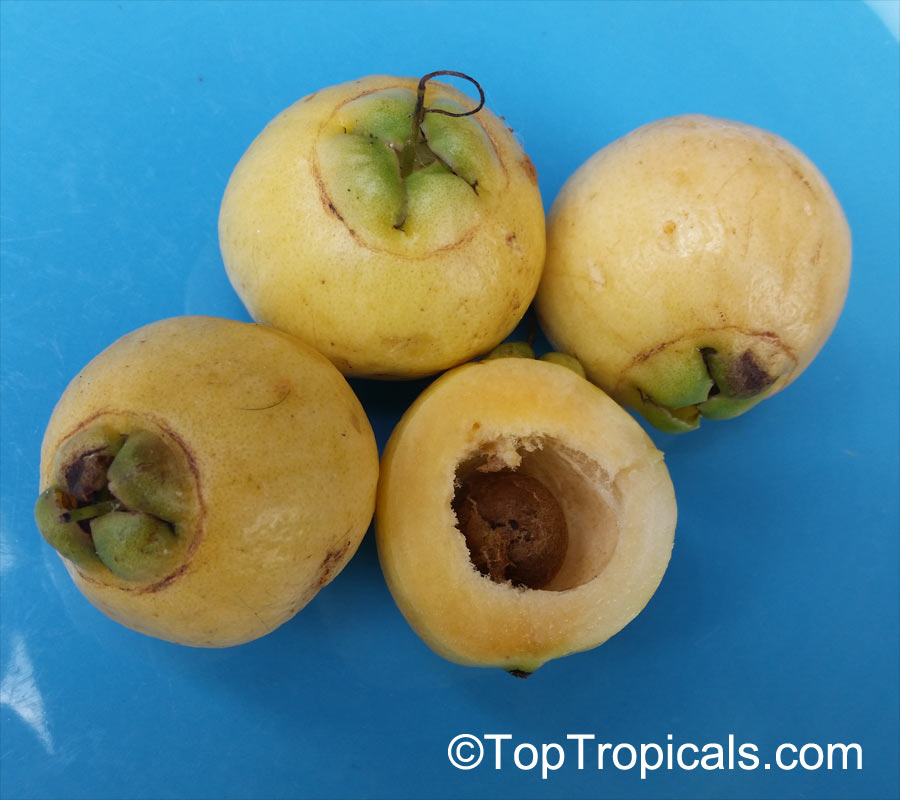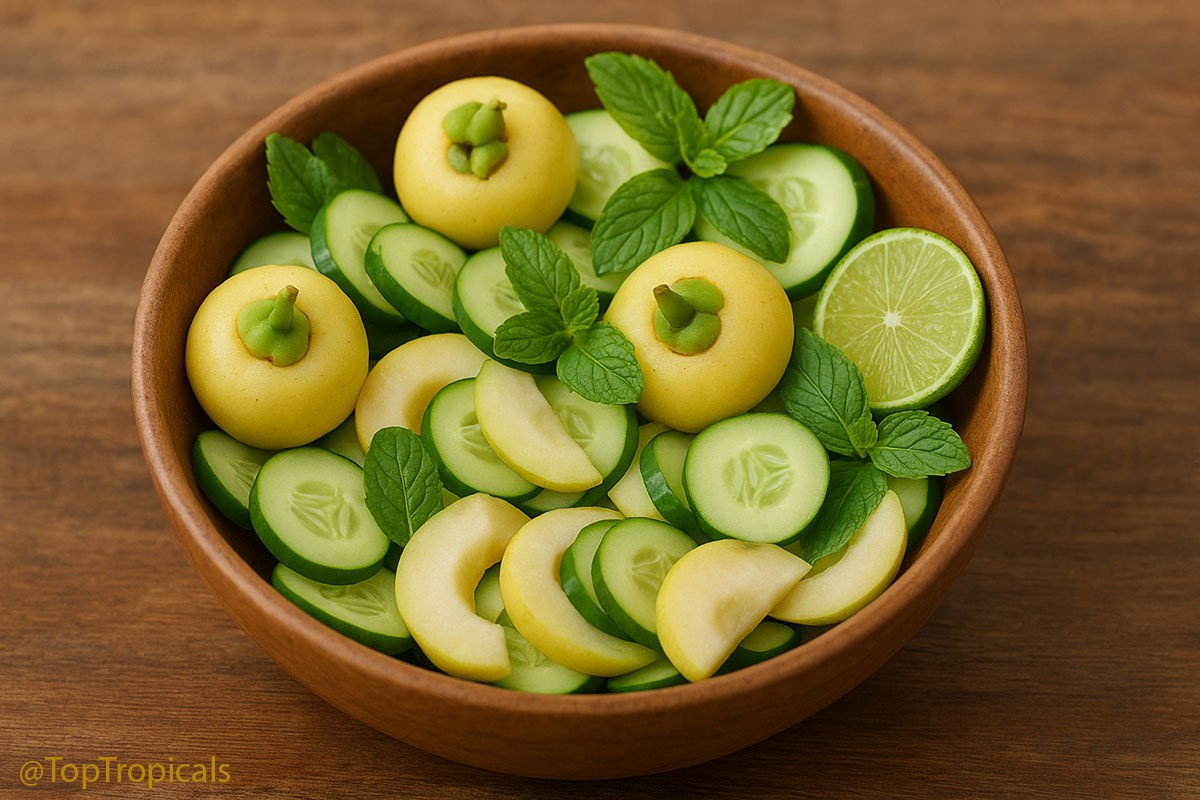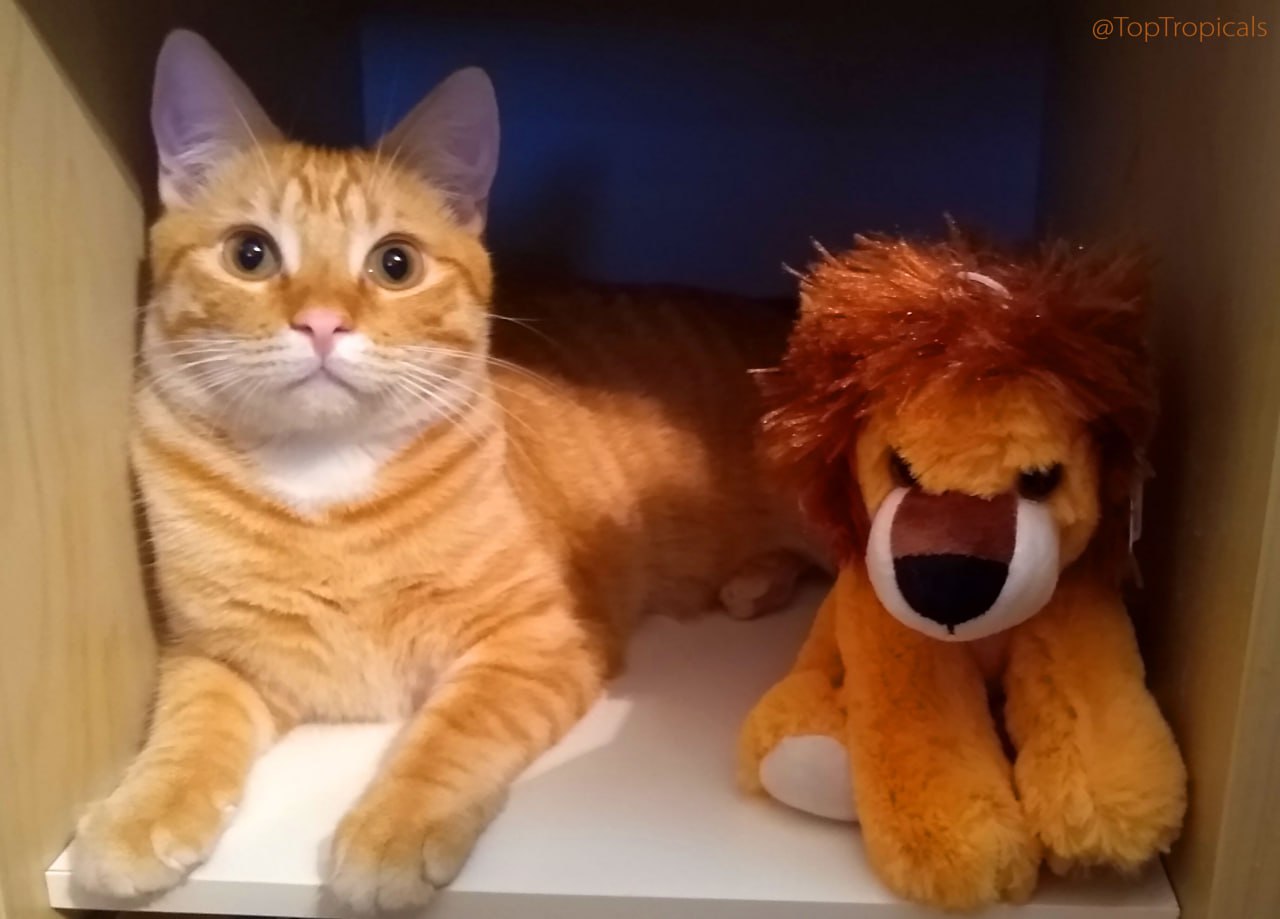Garden Blog - Top Tropicals
Date:
❄️ How to Prepare Your Tropical Garden for Winter
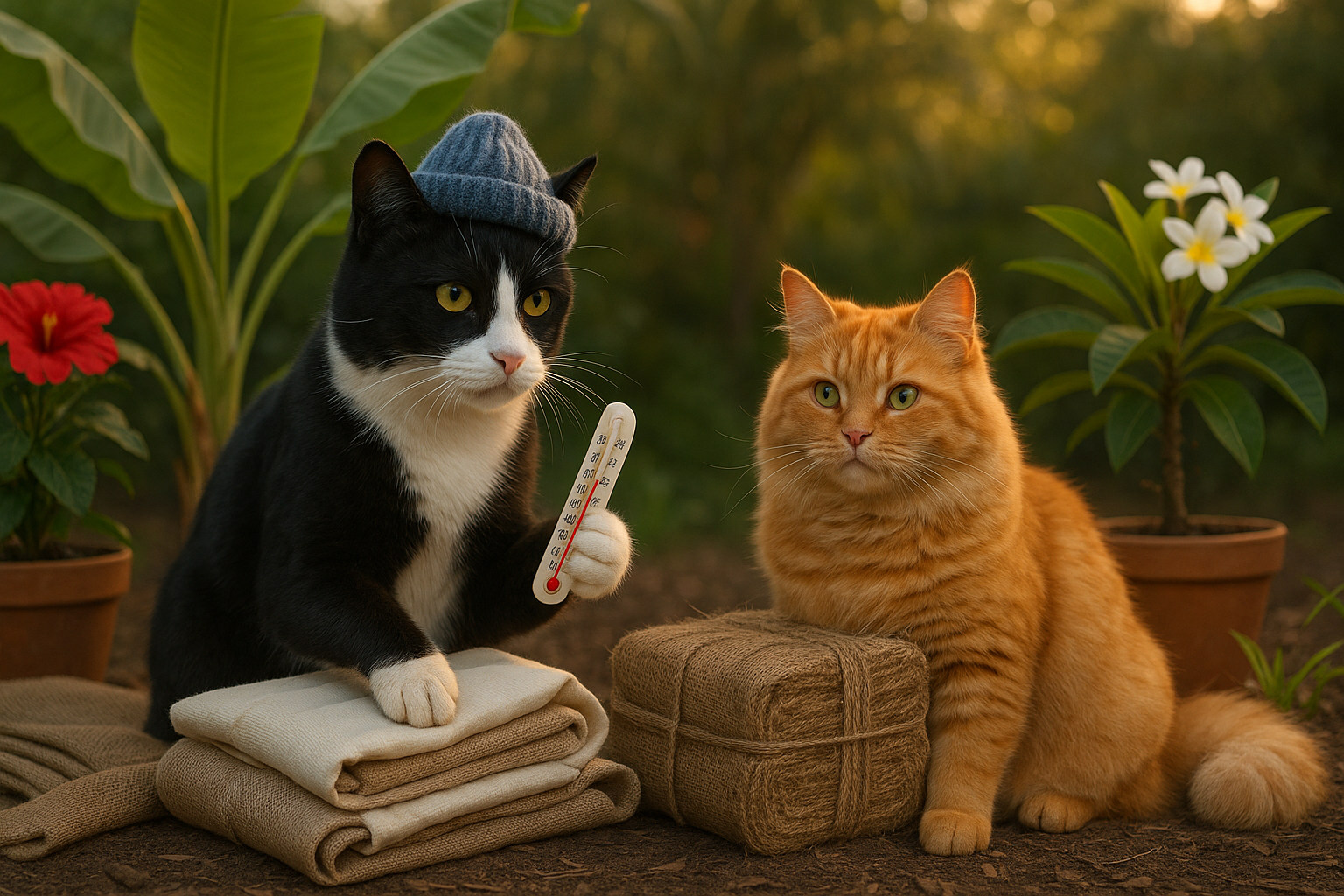
Smokey and Sunshine Wrap Up the Garden with Frost Cloth Before the Chill.
Smokey: "Thermometer says 45. Time to wrap the bananas!"
Sunshine: "You wrap the bananas. I’ll guard the mulch… from this
sunny spot."
Smokey: "Teamwork, Sunshine. Teamwork."
🌡️ Cold nights are coming - but your tropicals do not need to shiver!
Even in sunny Florida and other warm zones, one cold snap can undo months of growth. Preparation is everything. Tropical plants can handle a lot, but they dislike surprises. Let’s make sure your garden stays safe, strong, and happy all winter long.
Tips from Tatiana Anderson, Top Tropicals Plant Expert
👉 Group and Check Your Plants
You already know which plants are in pots and which are in the ground. What matters now is prioritizing by cold sensitivity. Identify the tender tropicals – papaya, banana, plumeria, adenium, heliconia – and decide which ones get covered first when temperatures drop. Keep frost cloths or old sheets near those areas, ready to grab fast. If your garden is large, label protection zones or mark plants that always need extra care. The goal is to have a plan, not a panic, when the cold alert hits.
Once you know your priorities, you can plan the rest of your protection strategy.
👉 Feed and Mulch
Stop using high-nitrogen fertilizers by late fall. They push soft new growth that freezes easily. Add compost around the base of your plants and top with 3 to 4 inches of mulch. Mulch acts like a blanket: it keeps warmth in, protects the roots, and keeps soil moisture steady. Just make sure the soil drains well; cold and soggy soil leads to root rot. In raised beds, check that water flows away easily.
After you feed and mulch, it is time to look at how your local zone changes the game.
👉 Zone-by-Zone Tips
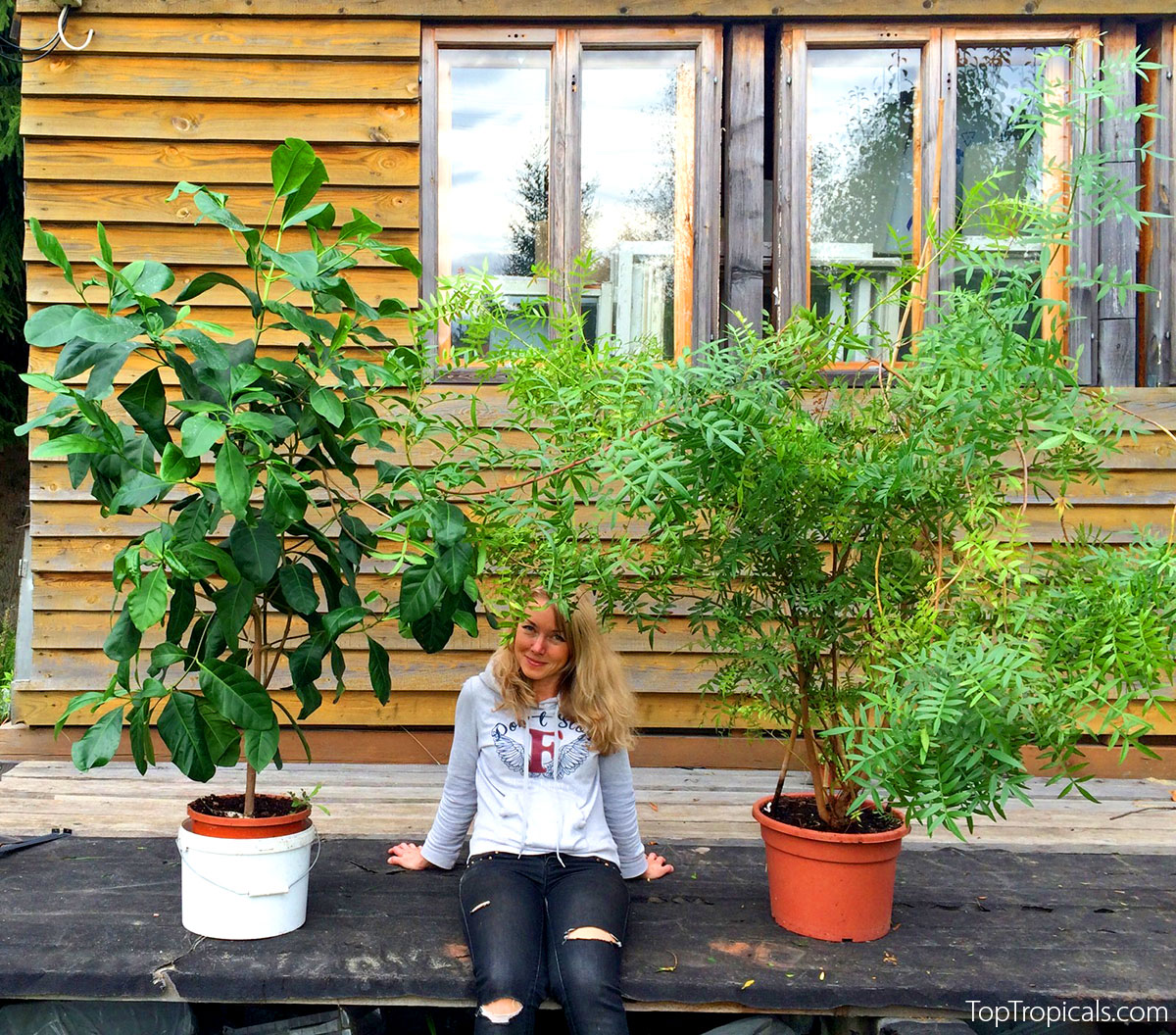
Moving Tropical Plants Indoors for Winter Protection
- Zone 10: You are lucky! This is mostly a maintenance season. Watch for root rot after heavy rain, trim lightly if needed, and protect tender young trees during surprise chills. Keep some frost cloth ready just in case.
- Zone 9: This is the main action zone. Nights can dip into the 30s. Deep-water your trees once before cold nights to insulate the roots. Apply heavy mulch, and have frost protection ready to go. If you grow tropical fruit like mango or guava, consider wrapping young trunks in burlap or foam pipe insulation.
- Zone 8: This is where tropical gardening becomes creative. Stick to cold-hardy tropicals such as loquat, guava, or cold-hardy avocado varieties. Use portable greenhouses, wrap trunks, and move smaller plants indoors or to a heated porch when frost threatens.
Now that the garden beds are set, let’s look at your pots and containers – your most mobile plants.
👉 Container and Patio Plants
Potted plants are the easiest to protect but also the quickest to freeze. Start reducing watering now so roots do not stay too wet in cooler weather. Before moving them, check for insects hiding under leaves or in the soil. Group your pots close to a wall for reflected heat and wind protection. If you plan to bring them indoors, do it gradually. Move them closer to the house for a few days before bringing them all the way inside to help them adjust to lower light and humidity.
When the chill starts, many gardeners rush to move everything inside at once – but a smooth transition works much better.
👉 Indoor Plants
When bringing plants inside, give them a good rinse to remove dust and bugs, and flush the soil to wash out salts from summer fertilizing. Keep them separate from your houseplants for a week to make sure no pests come along. Expect some leaf drop – it is normal as they adjust to lower light. Give them bright light near a window, and cut watering by about half until spring. Avoid misting too much; good airflow matters more than humidity during winter.
Many tropicals, like hibiscus, brugmansia, and crotons, may look tired for a while, but they will bounce back quickly once days get longer.
👉 Timing Is Everything
The key is to prepare before the first cold warning. Check your weather app regularly once nights start dropping into the 50s. Keep covers, mulch, and supplies ready so you are not running outside at midnight with a flashlight and a frozen hose. Have your frost cloths labeled by plant group and stored in an easy spot. A little organization now saves a lot of stress later.
Many tropicals, like hibiscus, brugmansia, and crotons, may look tired for a while, but they will bounce back quickly once days get longer.
Remember: the goal is to help your plants rest safely. Many gardeners prune or fertilize too late in the season – we will talk about why that can be risky next week." — says Tatiana Anderson, Top Tropicals Plant Expert
Coming next mail-list: The best gadgets for cold protection (lights, heaters, frost covers) and what NOT to do in winter.
📚 Learn more from Top Tropicals Blog:
Cold protection - winter action for your plant collection
What plants are good to order in Winter?
How to take care of house plants in Winter
How to protect tropical plants in Winter
How to take care of a mango tree in winter
How to protect Avocado from cold
Overwintering Adeniums outside of tropics
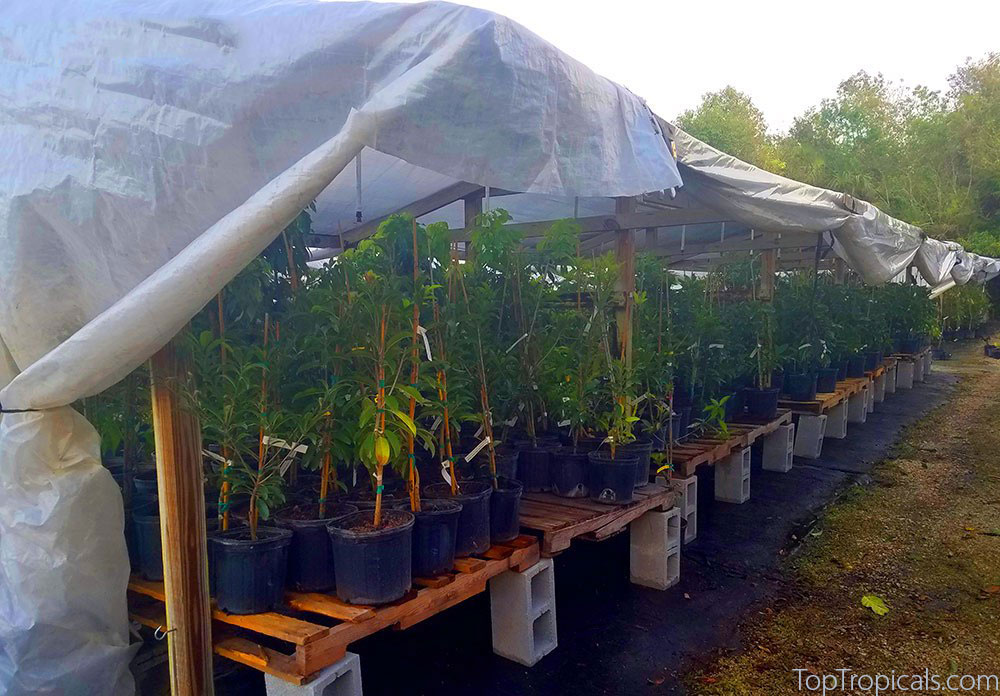
Protecting Tropical Plants with Frost Covers at Top Tropicals Nursery
Watch how this cat fixed the refrigerator
James Coconuts, the Boss Cat
"The important thing is not to stop questioning. Curiosity has its own reason for existing." - Albert Einstein
"Curiosity may have killed the cat, but satisfaction brought him back." - Old English proverb, the original, more hopeful version
🐈📸 James Coconuts, the Boss Cat , exploring options of electrical wiring at TopTropicals PeopleCats.Garden
#PeopleCats #Quotes
🟢 Join 👉 TopTropicals
Edible cactus with health benefits that your tortoise will love too
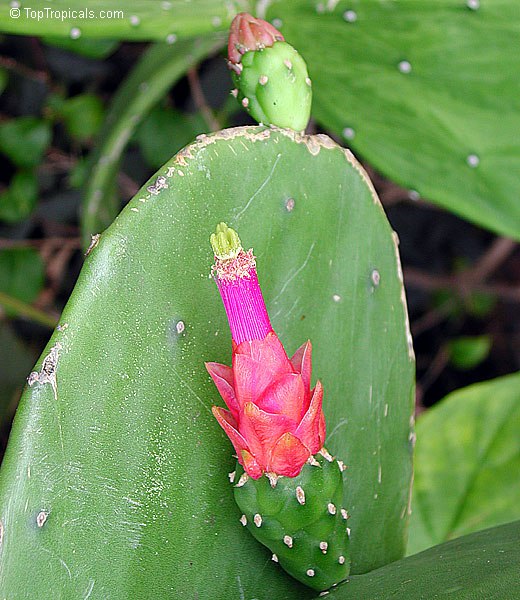
Opuntia cochenillifera - Velvet Nopal Cactus, Nopales, Prickly Pear, leaves and flower
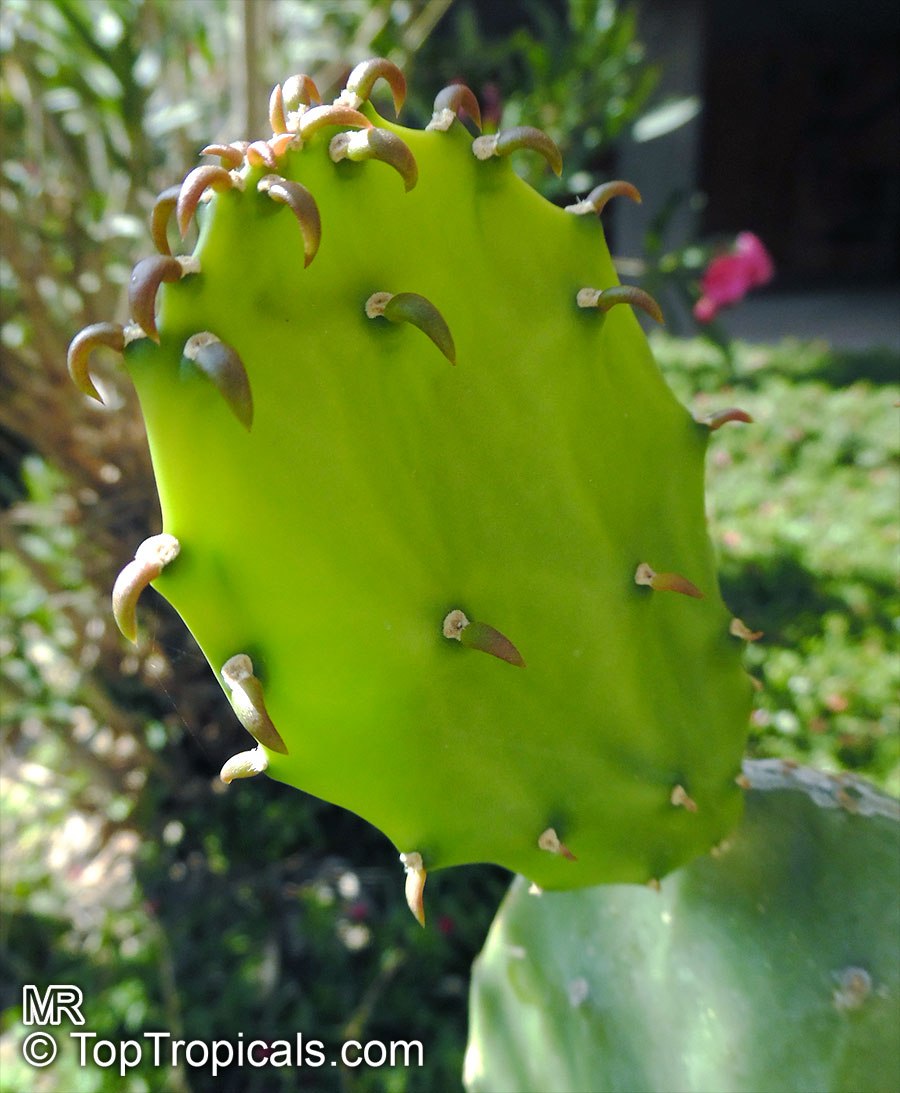
Opuntia cochenillifera - Velvet Nopal Cactus, Nopales, Prickly Pear, leaves
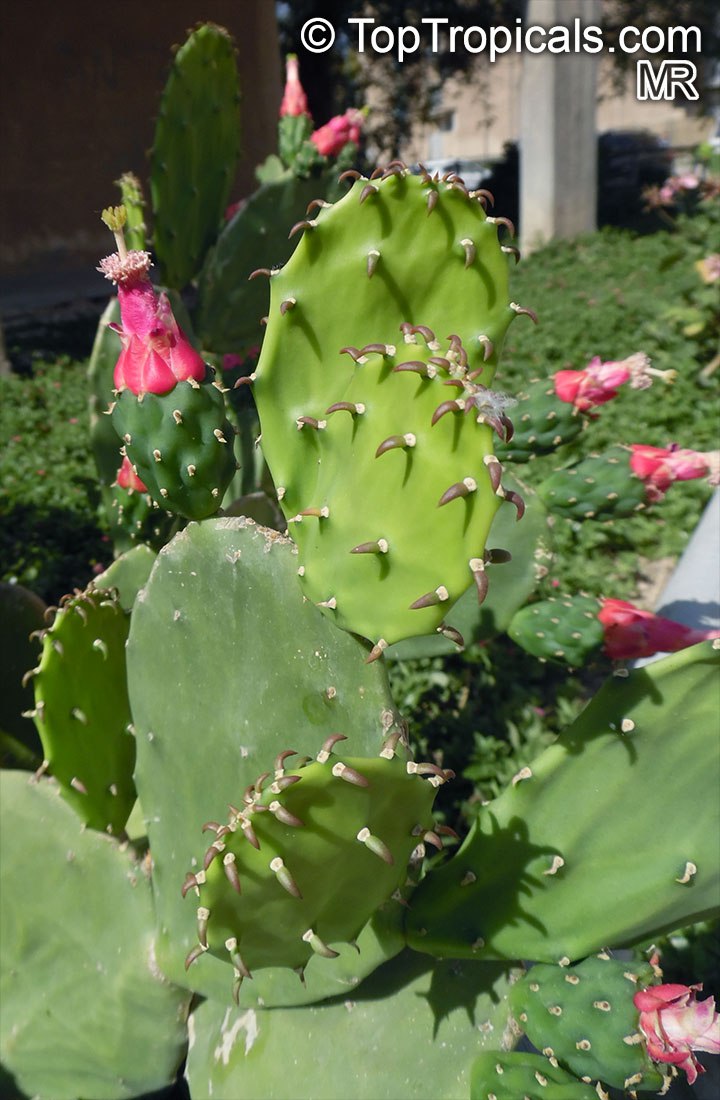
Opuntia cochenillifera - Velvet Nopal Cactus, Nopales, Prickly Pear, leaves and flowers
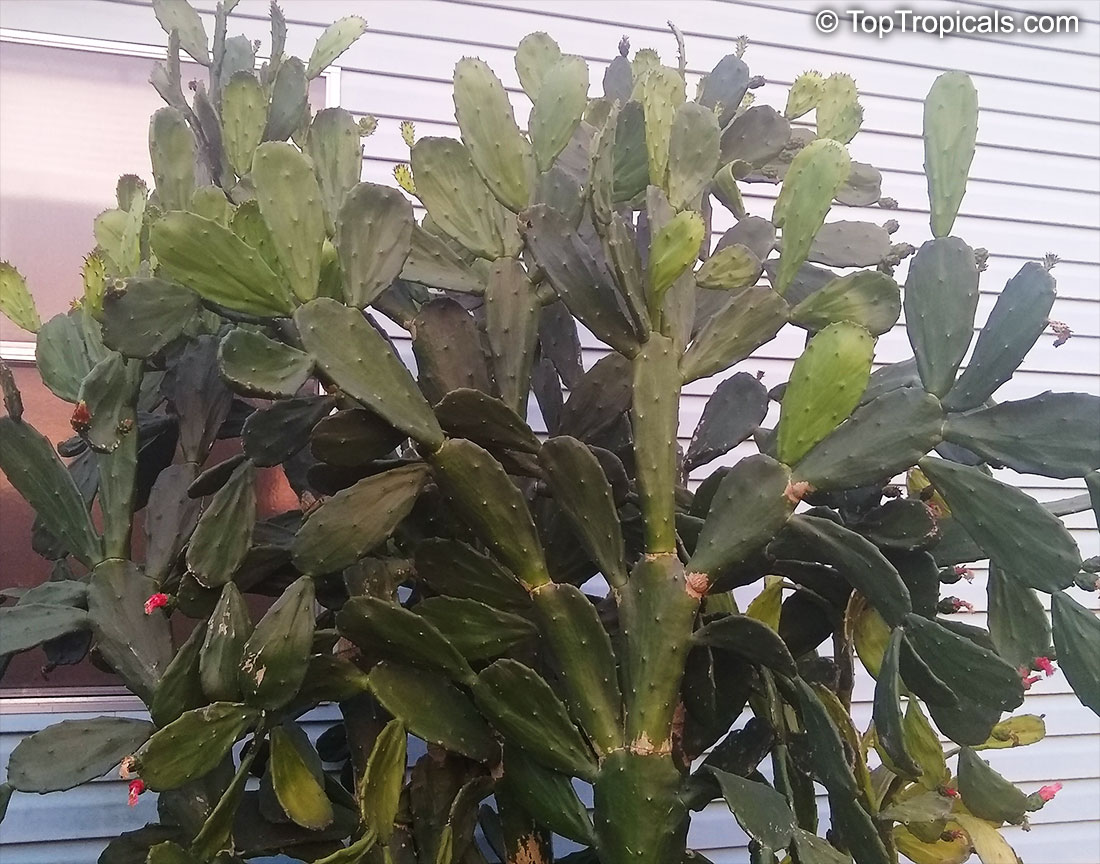
Opuntia cochenillifera - Velvet Nopal Cactus, Nopales, Prickly Pear, large plants
- 🌵 Opuntia cochenillifera - Velvet Nopal Cactus, Nopales, Prickly Pear - is one of the most useful and forgiving cactus species you can grow. Unlike most desert cacti, this one thrives even in humid tropical climates like Florida, making it one of the few rain-tolerant cacti that actually loves moisture. Fast-growing and ornamental, it produces bright red flowers and makes a beautiful, low-maintenance landscape plant that thrives in heat, drought, and even neglect.
- 🌵 Prickly Pear is a very valuable edible, used as a vegetable with impressive medicinal properties. The young pads, called nopales, can be stir-fried or sauteed with onions and garlic for a tangy, nutrient-rich side dish.
- 🌵 In Hispanic cooking, this plant is known simply as Nopal or Nopales – a traditional ingredient used in dishes like ensalada de nopales (nopal salad), nopales con huevo (eggs with cactus), and nopales asados (grilled cactus).
- 🌵 Regularly eating Nopales has been linked to improved blood sugar control, and many people who include it in their diet report significant help in managing diabetes.
- 🌵 Nopales is also a favorite treat for tortoises and other herbivorous pets. Its smooth, spineless pads are packed with hydration and nutrients, making it a safe, natural food source.
- 🌵 So, this is not just a cactus - it’s a food, medicine, and ornament all in one. Tough, beautiful, and endlessly useful!
🛒 Plant your own food and pharmacy Nopales
#Food_Forest #Remedies
🟢 Join 👉 TopTropicals
Smile - you are on camera!
"When you change the way you look at things, the things you look at change." - Wayne Dyer
🐈📸 Cash the the cat looking at things from a different angle at TopTropicals PeopleCats.Garden
#PeopleCats #Quotes
🟢 Join 👉 TopTropicals
It smells like bananas but its a magnolia!
Magnolia figo, Banana Magnolia
🛒 Plant Banana Magnolia
📚 Learn more:
#Perfume_Plants #Container_Garden #Trees
🟢 Join 👉 TopTropicals
Rose apple salad: quick-n-fun exotic recipes
- 🔴Slice rose apples, toss with cucumber, lime, and mint.
- 🔴Light, crunchy, and fragrant.
🛒 Plant exotic Rose Apple Tree
📚 Learn more:
Fruit that smells like roses
#Food_Forest #Recipes
🟢 Join 👉 TopTropicals
Cats now demand cable!
Riki the cat is watching TV
"The kiss of the sun for pardon,
The song of the birds for mirth,
One is nearer God's heart in a garden
Than anywhere else on earth."
- Dorothy Frances Gurney
🐱 Every cat deserves a good show. Who needs Netflix when you have Catflix? Our cats got Cat TV. What about yours?
📱 Youtube: Cat TV for PeopleCats at TopTropicals
🐈📸 Riki is watching his TV bird show at TopTropicals PeopleCats.Garden
#PeopleCats #Quotes
🟢 Join 👉 TopTropicals
The vine with square stems that heals bones and turns heads
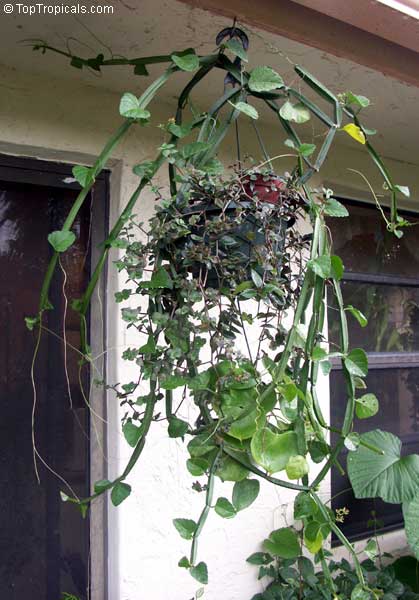
Cissus quadrangularis - Veld Grape, hanging basket
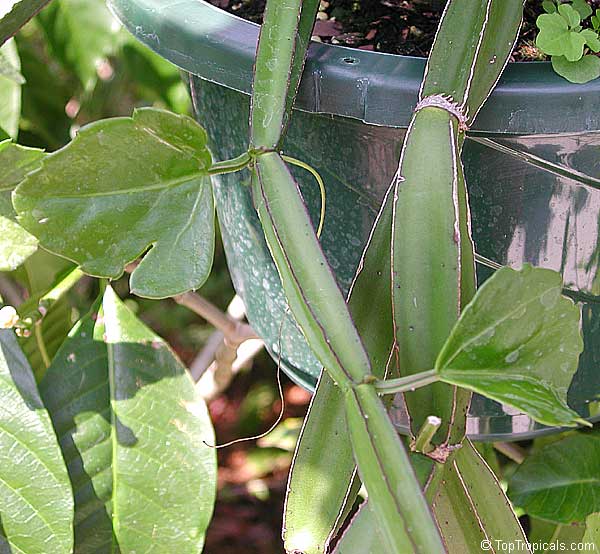
Cissus quadrangularis - Veld Grape, stems
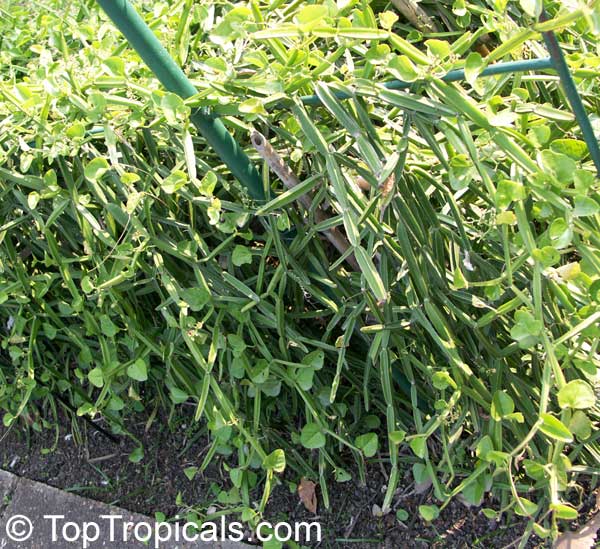
Cissus quadrangularis - Veld Grape plant
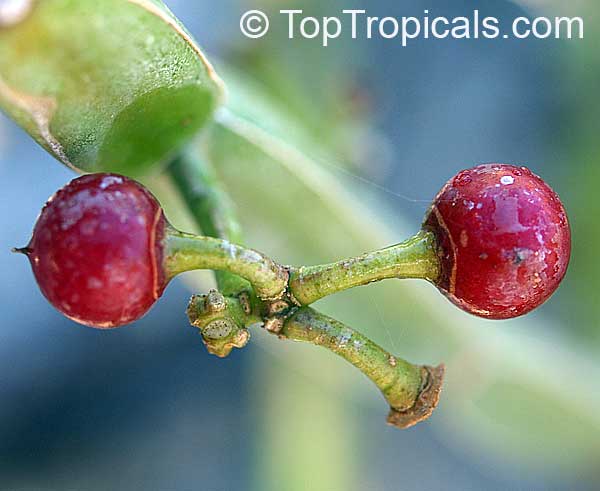
Cissus quadrangularis - Veld Grape, fruit
- Cissus quadrangularis - Veld Grape. This plant is anything but ordinary! It has four-winged stems – square, chunky, and unlike anything else in your garden. Each stem looks like a little green sculpture, with ribs running down the sides. It’s technically a vine, but behaves like a succulent, with thick, juicy stems and tiny tendrils that climb or spill from a pot.
- Native to Africa and India, veld grape thrives on sunshine, heat, and a bit of neglect. Perfect for hanging baskets or as a quirky groundcover. Just give it some light and occasional water, and it’ll keep growing strong.
- It’s also famous as a traditional "bone-healing" herb, earning it the nickname Bone setter plant. But even if you don’t use it for that, it’s a total show-stopper for anyone who loves plants with personality.
- A true show-stopper for collectors and anyone who loves the strange and beautiful side of nature.
🛒 Get your own Veld Grape show stopper
#Container_Garden #Remedies #Fun_Facts
🟢 Join 👉 TopTropicals
Cat Bob and BobCat
"We’re basically the same species. Just different subscription plans."
🐈📸 Cat Bob and his mini-version at TopTropicals PeopleCats.Garden.
#PeopleCats
🟢 Join 👉 TopTropicals
You thought you knew Gardenias, until you saw this one!
Gardenia nitida (Posoqueria), Shooting Star Gardenia
- ⭐️ Gardenia nitida (Posoqueria), Shooting Star Gardenia, is one of the most unusual gardenias you’ll ever see! Native to tropical Africa, it is a rare and elegant shrub that’s as fascinating as it is fragrant.
- ⭐️ Unlike common gardenias with thick, waxy foliage, this one has large, diamond-shaped leaves that feel soft and delicate. The plant grows slowly into a rounded form, making it perfect for containers or small gardens.
- ⭐️ When it blooms, the show is unforgettable. The long, tubular white flowers burst out in clusters, looking like tiny shooting stars against glossy green leaves. The scent is rich, sweet, and exotic - filling the air even from a distance.
- ⭐️ Blooming several times a year, this gardenia lights up your garden whenever it decides to put on a show. A true collector’s piece for those who love rare, fragrant plants that stand out from the crowd.
🛒 Add these stars with scent to your collection
📚 Learn more:
Shooting Star Gardenia: a rare scent from Africa
#Perfume_Plants #Hedges_with_benefits
🟢 Join 👉 TopTropicals

